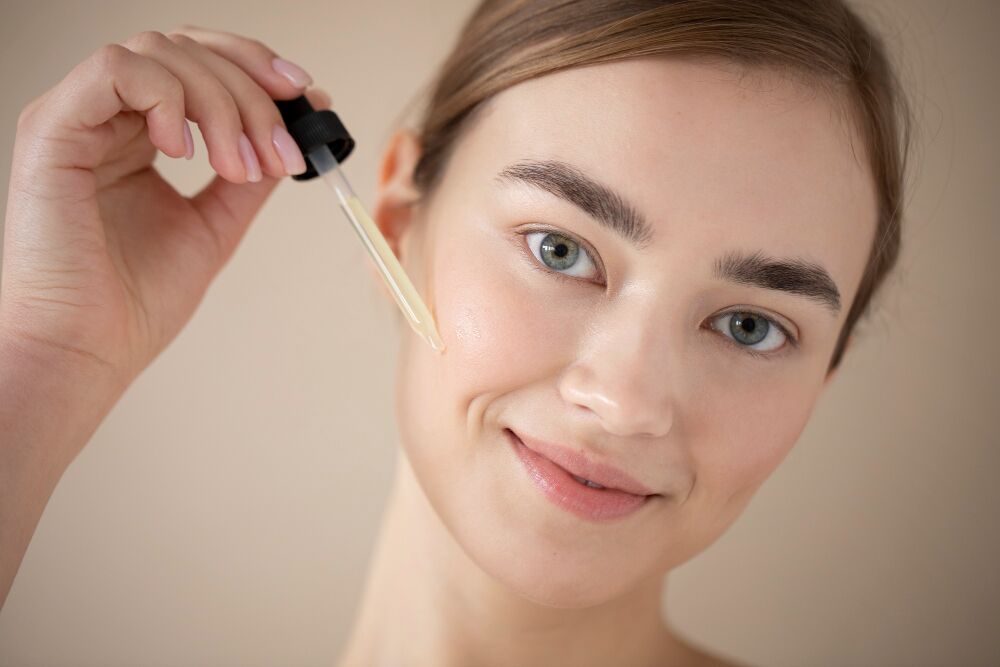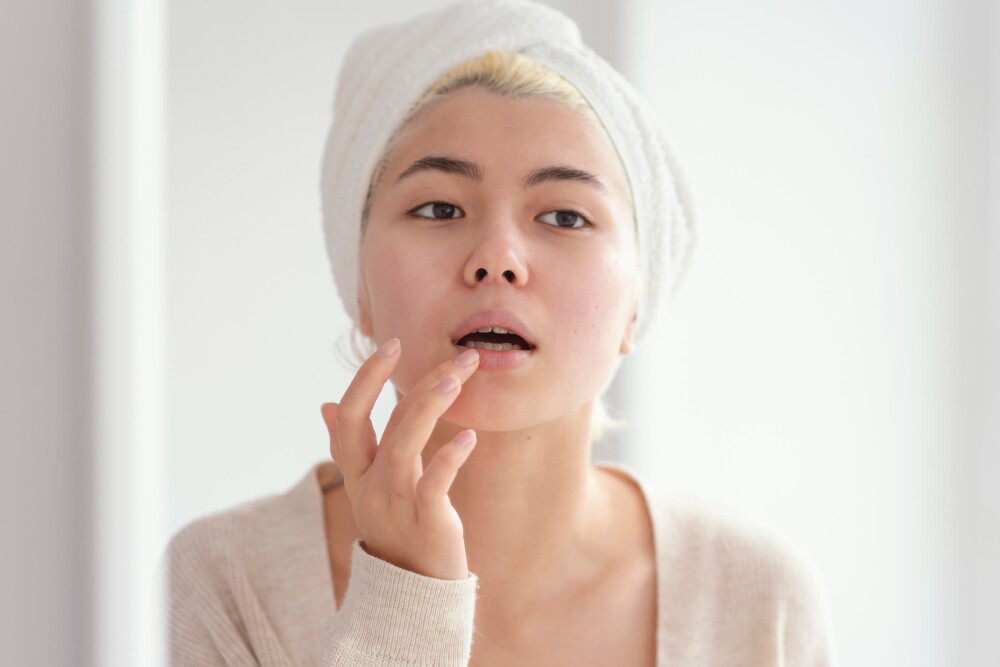Benefits of Using Retinol Serum on Face

Introduction
Retinol, a derivative of vitamin A, has been a mainstay in the skincare industry for decades, and for good reason. This potent ingredient offers a wide range of benefits for your facial skin, from minimizing wrinkles and fine lines to improving skin tone and texture. In this comprehensive article, we’ll dive into the science behind retinol, explore its transformative effects on various skin concerns, and provide expert tips on how to incorporate it into your skincare routine for optimal results.
How Retinol Works: The Science Behind the Transformation
Retinol belongs to a class of compounds called retinoids. When applied topically, retinol converts into retinoic acid, the active form that interacts with skin cells. Here’s a breakdown of its key mechanisms:
- Cellular Turnover: Retinol accelerates the natural shedding of old skin cells and stimulates the production of new ones. This leads to a smoother, more even-toned complexion.
- Collagen Boost: Retinol encourages fibroblasts, the cells responsible for collagen production, to work harder. Collagen is the protein that provides structure and elasticity to the skin, and increased production helps reduce wrinkles and fine lines.
- Elastin Preservation: Retinol helps inhibit enzymes that break down elastin, another protein that keeps skin firm and plump.
- Antioxidant Properties: Retinol offers protection against free radicals, unstable molecules that damage skin cells and contribute to aging.
Retinol’s Skin-Renewing Benefits
- Fine Lines and Wrinkles: By boosting collagen and elastin, retinol helps diminish the appearance of fine lines and wrinkles, leaving skin looking smoother and younger.
- Age Spots and Hyperpigmentation: Retinol promotes cellular turnover, which fades dark spots, sun damage, and uneven skin tone.
- Acne Management: Retinol unclogs pores, reduces inflammation, and helps regulate oil production, making it beneficial for acne-prone skin.
- Improved Texture: Retinol gently exfoliates the skin, resulting in a smoother, more refined texture with reduced roughness and dullness.
- Enhanced Radiance: The combination of retinol’s effects— increased cell turnover, smoother texture, and improved pigmentation—results in brighter, more radiant skin.
Choosing the Right Retinol Serum
- Strength: Retinol products come in varying strengths, usually indicated as a percentage. For beginners, start with 0.01%-0.03% and gradually increase as your skin tolerates it. Higher strengths (up to 1%) might be necessary for more advanced concerns.
- Formulation: Consider your skin type. If you have dry or sensitive skin, look for formulas containing hydrating ingredients like hyaluronic acid or ceramides.
- Packaging: Choose airtight, opaque packaging to prevent retinol degradation, protecting its potency.
Incorporating Retinol into Your Routine
- Gradual Introduction: Start by using retinol twice a week to allow your skin to adapt. You can gradually increase the frequency as tolerated.
- Nighttime Application: Retinol makes your skin more sensitive to sunlight, so it’s best to apply it at night.
- Post-Cleanse Application: Apply retinol to clean, dry skin.
- Moisturizer: Follow up retinol with a gentle moisturizer to prevent dryness.
- Sunscreen is a MUST: Retinol-treated skin is extra photosensitive. Always use broad-spectrum sunscreen with SPF 30 or higher during the day.
Potential Side Effects and Precautions
Retinol can initially cause dryness, irritation, redness, and peeling, especially when you first start using it. These side effects usually subside as your skin acclimates. Here’s how to manage them:
- Reduce Frequency: Temporarily decrease the frequency of retinol application.
- “Retinol Sandwich”: Apply moisturizer before and after retinol to buffer its effects.
- Consult a Dermatologist: If irritation persists or is severe, consult a dermatologist for guidance.
Important Considerations
- Pregnancy and Breastfeeding: Avoid using retinol products if you are pregnant or breastfeeding.
- Sensitive Skin: Those with sensitive skin conditions like eczema or rosacea should exercise caution and potentially consult with a dermatologist before using retinol.
- Sun Safety: Rigorous sun protection is essential when using retinol.
Additional Benefits of Retinol
- Scar Reduction: Retinol can help remodel collagen, improving the appearance of acne scars and other textural irregularities.
- Pore Size Reduction: By unclogging pores and promoting healthy cell turnover, retinol can make pores look smaller.
- Skin Thickening: Retinol helps strengthen the deeper layers of the skin, giving it a firmer, more resilient appearance.
Retinol vs. Other Retinoids
Clarify the differences between commonly used retinoids:
- Retinol: Over-the-counter, less potent but generally well-tolerated
- Retinaldehyde: Over-the-counter, stronger than retinol, less irritating than retinoic acid.
- Retinoic Acid (Tretinoin): Prescription-strength, most potent but also potentially more irritating.
Debunking Retinol Myths
- “Retinol thins the skin”: Retinol actually encourages healthy skin thickening over time. Initial flakiness is a sign of increased cell turnover, not thinning.
- “You can’t use retinol around the eyes”: The eye area can benefit greatly from retinol. Start with a lower concentration product specifically formulated for the delicate eye area.
- “Retinol makes you more sensitive to the sun forever”: While diligent sun protection is always necessary, your skin’s photosensitivity returns to normal once you stop retinol.
Advanced Retinol Tips
- Layering with other actives: Carefully combine retinol with ingredients like alpha hydroxy acids (AHAs) or vitamin C for enhanced results. However, consult a skincare expert for proper guidance.
- Retinol Alternatives: For truly sensitive skin, consider plant-based alternatives like bakuchiol, which offers similar benefits with less potential irritation.
FAQs
Address common retinol questions:
- How long does it take for retinol to work? Noticeable improvements may take a few weeks, with full results visible after 3-6 months of consistent use.
- Can retinol be used daily? Start slowly. Once your skin tolerates it, you can gradually work up to nightly use.
- Does retinol expire? Pay attention to the expiration date, as degraded retinol can be less effective and potentially irritating.
Real-Life Examples and Testimonials
- Case studies and before/after photos: Showcase the transformative power of retinol.
- Quotes from dermatologists: Provide expert insights and recommendations.
- Personal anecdotes: Relatable stories from people who have seen improvements in their skin with retinol use.
Conclusion Retinol is a true skincare powerhouse, offering a multitude of benefits for achieving healthier, younger-looking skin. Understanding how it works, selecting the right product, and following a thoughtful application process will help you maximize its potential.












